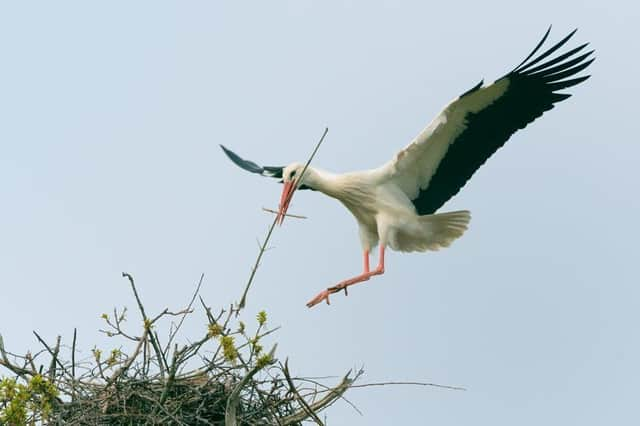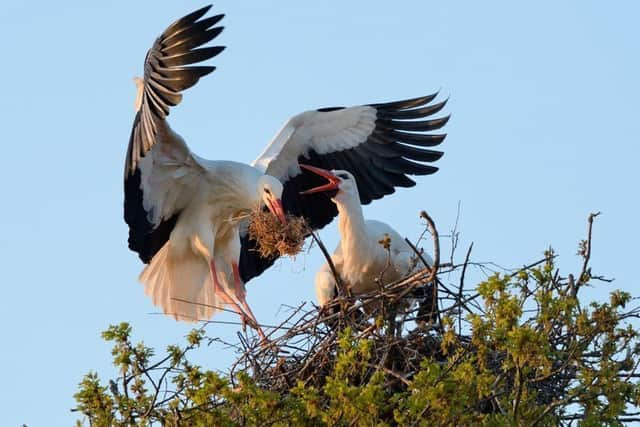Storks set to be re-introduced to countryside around Horsham


The birds - once a common sight across Britain - have not been seen in southern England since the end of the Civil War.
But now it is hoped that white storks will become established at the Knepp Estate in West Grinstead.
Advertisement
Hide AdAdvertisement
Hide AdThe estate is owned by pioneering landowner Charlie Burrell who is spearheading a ‘rewilding’ project on the estate which is transforming 3,500 acres of unprofitable farmland into a haven for wildlife — including storks.


It is unclear why the birds failed to survive in Britain, but experts say it is likely because of habitat loss, over-hunting and targeted persecution - especially during the English Civil War when the birds were associated with rebellion.
There have been many sightings of white storks in the south east over recent years, but conservationists say that the species need a helping hand to re-establish a breeding population in Britain.
The Knepp Estate is now a key part of The White Stork Project, a pioneering partnership of private landowners and nature conservation charities which aim to restore a population of at least 50 breeding pairs in the south by 2030 through a phased release programme over the next five years.
Advertisement
Hide AdAdvertisement
Hide AdAt least 250 white storks will be released at several sites in Sussex and surrounding counties. Initial releases aimed at establishing local breeding populations have already been undertaken and will be supplemented in late summer each year by the release of captive-bred juvenile storks reared at Cotswold Wildlife Park.
Knepp owner Charlie Burrell said: “We are thrilled to see these wonderful birds starting to nest in Sussex once again. A raft of recent reports have brought into stark focus how close we are to ecological collapse, but there is still hope.
“Projects like the rewilding of Knepp show that when allowed to do so, nature can heal itself.”
Isabella Tree, co-owner of the Knepp Estate, added: “For centuries the stork has been used as a symbol of rebirth and renewal, and we hope its return to Britain will help kick-start a movement for the wider restoration of nature.”
Advertisement
Hide AdAdvertisement
Hide AdInternational environmental charity, the Durrell Wildlife Conservation Trust, is a key partner in the project. Project officer Lucy Groves said: “It’s a real privilege to watch and follow the behaviours of these charismatic birds, particularly the nesting.
“I am excited to work with the local community as I believe these beautiful birds will really capture the public’s imagination and hopefully become a positive symbol that there is hope for the natural world.”